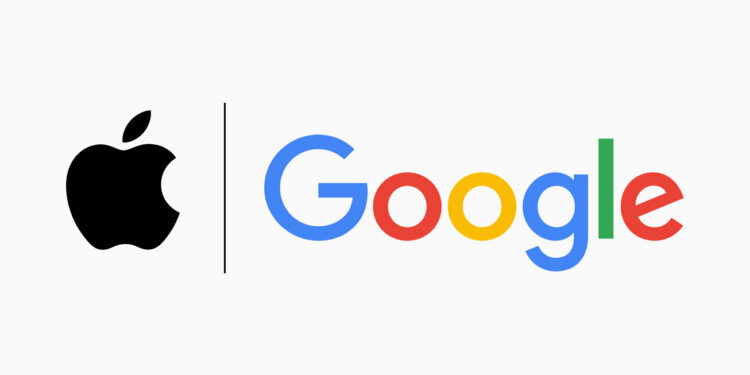Apple has been in the spotlight for years when it comes to its multi-billion dollar agreements with Google. The question of whether Google should continue to be the default search engine in Safari was particularly critically examined in the context of the major antitrust case against Google. Now, Judge Amit Mehta has issued a ruling that largely leaves Apple's business with Google unaffected – and has significant consequences for both companies.
A year ago, the U.S. Department of Justice ruled that Google holds a monopoly on online searches. This made it clear that the issue wasn't just about Google itself, but also about the partners who benefit from this monopoly. Numerous witnesses were heard during the remedial action phase, including Apple executives like Eddy Cue. A particular focus was the agreement that sets Google as the default search engine in Safari. This partnership generates tens of billions of dollars for Apple every year. There was considerable uncertainty as to whether Judge Mehta would prohibit this practice. However, the ruling now published provides clarity.
The decision in detail
Judge Mehta has ruled that the partnership between Apple and Google can continue. A blanket ban on payments was rejected because, in the court's view, this would harm both partners and consumers. This ensures Apple's billions in revenue remain secure. The stock market reacted immediately: Apple shares rose 3.4 percent after hours, while Google shares even gained more than 7 percent.
What is still possible
The agreements between Apple and Google may essentially continue. Google may continue to pay Apple to ensure that its own search engine remains the default in Safari. However, Apple may also promote other search engines, different standards are possible depending on the operating system or private mode, and the default settings may be adjusted annually. Another point: Apple is not required to integrate additional selection screens into Safari or iOS. The court found that these would not improve competition in the search market. Furthermore, Apple is free to use its own or third-party generative AI products, even if Google Search remains active as the default. This means that Siri, potential new AI assistants, or chatbots from other providers remain available to Apple without the partnership with Google standing in the way.
What is no longer allowed
Despite the advantages for Apple, there are also clear limits. Google is no longer permitted to enforce exclusivity. This means Apple cannot be forced to use Google services exclusively or to link them with other Google products like Gemini. Likewise, incentives in the form of higher revenue shares or bonuses are prohibited if they are tied to exclusivity or the bundling of multiple Google apps. Another important point concerns the contract term. Google is no longer permitted to tie revenue shares to Apple maintaining Google Search as the default for longer than twelve months. This creates new opportunities for competitors to offer Apple a better deal every year.
Significance for Apple
For Apple, the ruling is a clear advantage. It retains its revenue from its partnership with Google, while remaining free to integrate new technologies such as generative AI into its systems. This not only secures Apple's billions in revenue but also keeps its options open regarding innovations in search and AI services.
Ruling brings stability for Apple and Google
Judge Mehta's ruling strengthens both Apple and Google. Apple continues to profit from the billions of dollars it pays for the default search engine in Safari, while the court's guidelines ensure that complete exclusivity is not achieved. This leaves Apple flexible when it comes to integrating new technologies and partnerships, while Google can largely defend its position in the search market. For digital competition, the decision means that while existing structures will remain in place, more room will be created for alternatives and innovation in the future. (Image: Apple / Google)
- Apple loses another AI researcher to Meta
- iOS 26 Beta 9 released: Apple pushes ahead with fine-tuning
- iOS 26 at a glance: What's new in the Messages app
- Apple redesigns TV app: What's new in iOS 26
- iOS 26: All the new features and highlights of the Podcasts app
- iOS 26: How Apple fundamentally changes the phone app
- iOS 26: Everything about the new home screen with Liquid Glass
- iOS 26: All the new features around the Liquid Glass design
- iOS 26: 7 exciting AirPods features at a glance
- iOS 26: Everything you need to know about the new FaceTime features
- Genmoji in iOS 26: Apple gives the feature a major update
- iOS 26: Everything about the new games app for iPhone, iPad, and Mac
- iOS 26: The most important new features in the Photos app
- iOS 26: Beats and AirPods automatically pause when you sleep
- iOS 26: All Apple Music innovations at a glance
- iOS 26 expands the functionality of the HomePod
- Image Playground gets significantly better with iOS 26
- iOS 26 brings new screenshot features to the iPhone
- iOS 26: Five new lock screen features at a glance
- iOS 26 design change: Reduce transparency easily
- iOS 26: Create your own ringtones – without GarageBand
- iOS 26: All the new features for Notes and Reminders
- Apple's new Siri could be worth the wait





